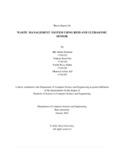| dc.contributor.advisor | Esfar-E-Alam, A.M. | |
| dc.contributor.author | Rahman, Md. Mafiur | |
| dc.contributor.author | Das, Nejhum Kanti | |
| dc.contributor.author | Rahat, Fardin Rizvy | |
| dc.contributor.author | Alif, Shamsul Arefin | |
| dc.date.accessioned | 2022-06-08T09:27:12Z | |
| dc.date.available | 2022-06-08T09:27:12Z | |
| dc.date.copyright | 2022 | |
| dc.date.issued | 2022-01 | |
| dc.identifier.other | ID 17101523 | |
| dc.identifier.other | ID 17101326 | |
| dc.identifier.other | ID 17101245 | |
| dc.identifier.other | ID 17101507 | |
| dc.identifier.uri | http://hdl.handle.net/10361/16949 | |
| dc.description | This thesis is submitted in partial fulfillment of the requirements for the degree of Bachelor of Science in Computer Science and Engineering, 2022. | en_US |
| dc.description | Cataloged from PDF version of thesis. | |
| dc.description | Includes bibliographical references (pages 44-46). | |
| dc.description.abstract | Bangladesh is a developing country, developing many different sectors of our country and countrymen although waste management quality is not very appreciable right now. We are introducing a smart waste management system. It is such a process which can be used to accelerate present waste management system. We are proposing a cost efficient or a low-cost device using Arduino UNO, Ultrasonic sensor, GSM module, RFID and LEDs. We are developing a smart bin based on RFID system where the RFID reader is attached to the bins and the reader will read the tags containing the information of each employee collecting the waste. With the help of the device, it will be possible to track the status of the garbage bin if it is full or not. The device will use ultrasonic sensor to measure the waste level of the container. According to the waste level the device will take necessary actions. When the garbage level of the bin is full the device will turn on LED signal to show that it is full. Besides, it will immediately send SMS to the assigned waste collector and to the server of the authority using GSM module. As the device uses the GSM technology, so there will be no need of any internet connection. So, it is not necessary that the waste collectors will need smartphones which will be cost efficient for both sides of the authority. The device will have RFID reader or scanner which will track the waste collector who is cleaning the container by RFID readable ID card or tag. This process will help to keep track of the employees if they are working properly or not. Finally, all this information will be sent to the server by SMS in JSON format. The server side must be able to retrieve JSON data and store in the database. In this rapidly growing country, Bangladesh waste is getting produced vigorously and it is really hard to dispose all of them at once. RFID based waste management system will surely be able to extract the wastes of our growing cities, keep our society and environment clean, hygienic and reduce air pollution spread by waste. | en_US |
| dc.description.statementofresponsibility | MD. Mafiur Rahman | |
| dc.description.statementofresponsibility | Nejhum Kanti Das | |
| dc.description.statementofresponsibility | Fardin Rizvy Rahat | |
| dc.description.statementofresponsibility | Shamsul Arefin Alif | |
| dc.format.extent | 46 pages | |
| dc.language.iso | en | en_US |
| dc.publisher | Brac University | en_US |
| dc.rights | Brac University theses are protected by copyright. They may be viewed from this source for any purpose, but reproduction or distribution in any format is prohibited without written permission. | |
| dc.subject | RFID | en_US |
| dc.subject | Ultrasonic sensor | en_US |
| dc.subject | Arduino UNO | en_US |
| dc.subject | GSM module | en_US |
| dc.subject | Waste management | en_US |
| dc.subject.lcsh | Radio frequency identification systems. | |
| dc.subject.lcsh | Microcontrollers -- Programming. | |
| dc.title | Waste management system using RFID and ultrasonic sensor | en_US |
| dc.type | Thesis | en_US |
| dc.contributor.department | Department of Computer Science and Engineering, Brac University | |
| dc.description.degree | B. Computer Science | |

